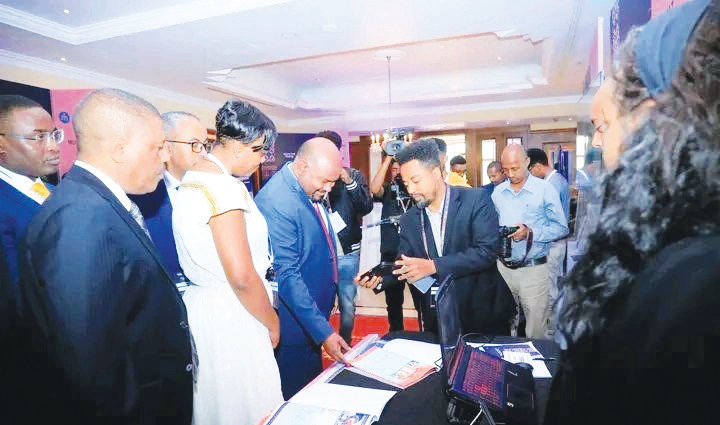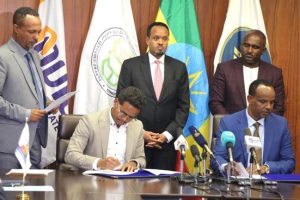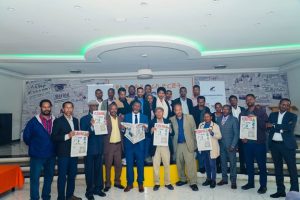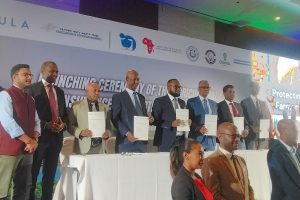
- Gov’t, partners renew commitment to local innovation
Ethiopia’s journey toward digital education is gradually taking shape as the country approaches the midpoint of its five-year national strategy, launched by the Ministry of Education in 2023. While the shift to digital tools is becoming increasingly visible in classrooms, the pace of transformation still falls short compared to global developments.
However, the recently held EdTech Week 2025 served as a strong signal of the government’s commitment to accelerating this transition through deeper engagement with local technology startups. Co-hosted by the Ministry of Education, Reach for Change, and the Mastercard Foundation, the event highlighted growing collaboration between the public sector and private innovators.
A key moment during the week was the signing of a partnership agreement between the Ministry and Reach for Change, an NGO working across Africa to support early-stage social entrepreneurs. The agreement focuses on empowering Ethiopian startups that aim to transform education through digital means.
Speaking at the event, the Education Minister’s Advisor Prof. Kindeya Gebrehiwot stressed the increasing openness of the government to involve private actors in reshaping the education system. He noted that engaging local startups is central to the broader goal of building a resilient, inclusive, and future-ready education landscape.
The national strategy outlines a vision for digital inclusion, public-private collaboration, and the development of both infrastructure and content. But while the ambition is clear, implementation remains uneven and calls for greater stakeholder participation and sustained investment.
One concrete step being taken is the provision of digital literacy training for teachers. This effort aims to narrow the technological gap between educators and students and to ensure that digital platforms are fully integrated into everyday learning environments. Prof. Kindeya emphasized that technology is not a luxury but a necessity for raising educational standards across all levels—from primary schools to universities.
Reach for Change Programme and Impact Director Shifteh Malithano explained that while the organization does not specialize in EdTech, it plays a critical role by connecting startups with technical knowledge, mentorship, and funding. Drawing on experience in countries like Ghana and Senegal, she underlined the need for targeted support that allows local innovation to thrive.
Enchawot Gamesco-founder Serkzinaw Sirak described the rising demand for digital tools that reflect local culture and languages. His startup develops educational games and books for children, combining fun and learning in formats tailored to Ethiopian contexts. Though the company faced early challenges, it is now growing its reach, workforce, and financial capacity.
Yet, he warned that most existing platforms are dominated by foreign-language content, creating disconnect for many learners. Supporting homegrown EdTech, he argued, is vital not only for digital advancement but also for preserving Ethiopia’s languages and indigenous knowledge systems.
What emerged from EdTech Week 2025 is a clear consensus: Ethiopia’s digital education transformation depends not just on government policy, but on meaningful, long-term investment in local innovators. Only by empowering those building solutions from within can the country hope to bridge its digital divide and prepare its next generation for a tech-driven world.
BY YESUF ENDRIS
THE ETHIOPIAN HERALD SATURDAY 14 JUNE 2025




